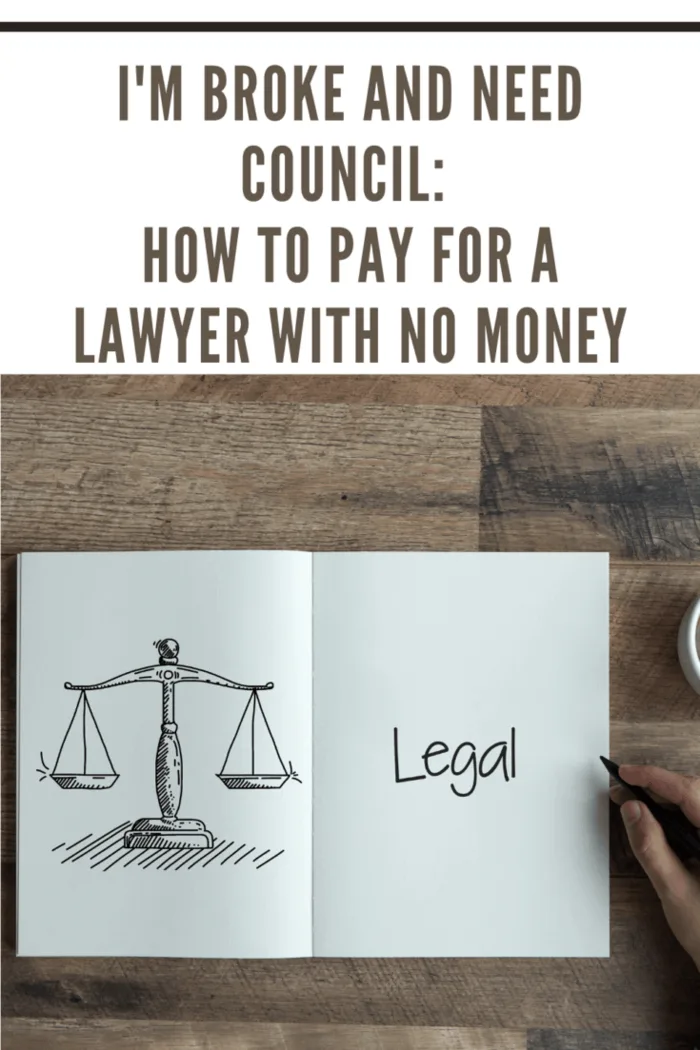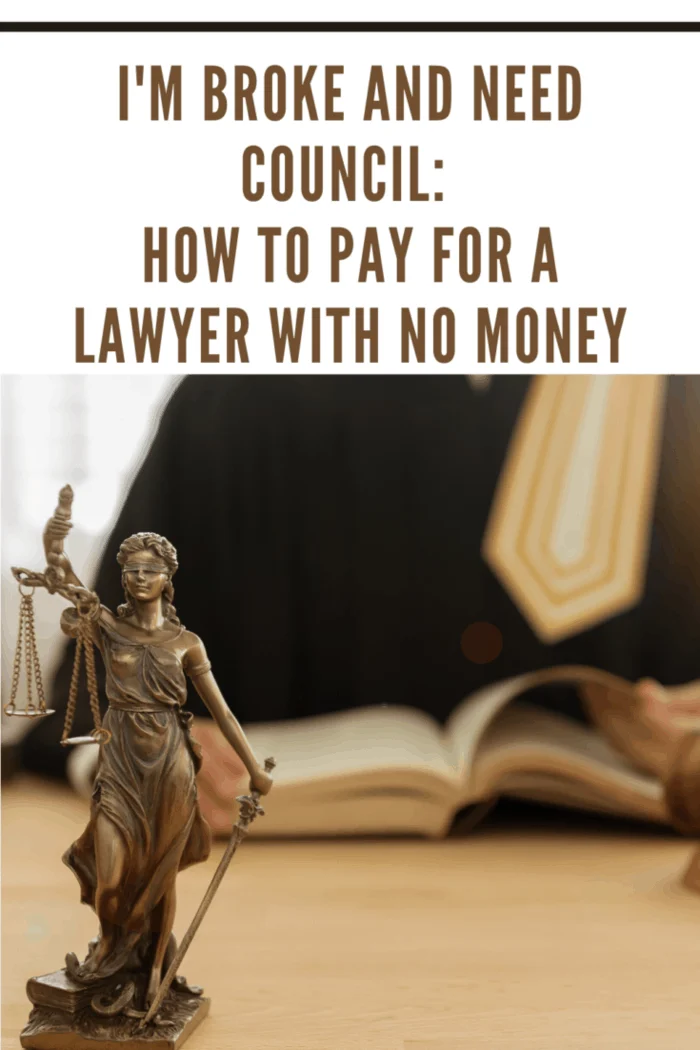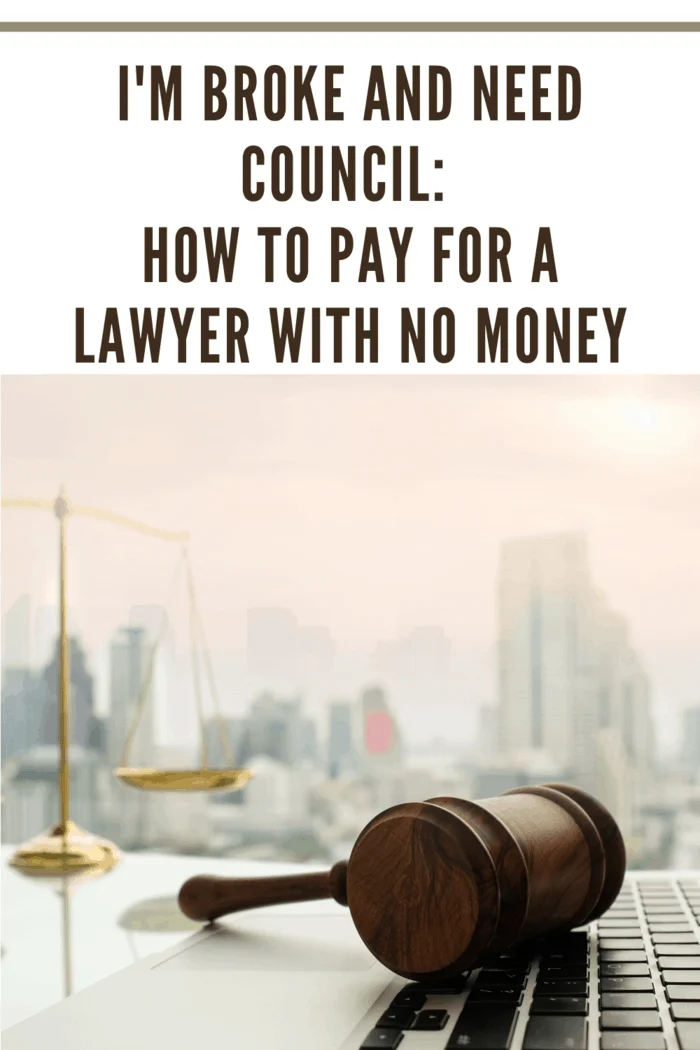Unfortunately, there are times when we have to take matters to court to settle them.
Those who have never been forced to go to court might think that everyone always gets an attorney to work for them, even if they don’t hire their own.
You get a court-appointed lawyer if you have to stand trial for a crime, but most other matters don’t offer the same luxury.
That’s right, and you’re forced to pay for a lawyer in almost all legal cases.
That said, sometimes, we just don’t have the money to settle the matters that need to be resolved.
We’re going to explore some ideas on how to pay for a lawyer with no money in this article, helping you brainstorm your next moves forward.

How to Pay for a Lawyer with No Money: Exploring Your Options
We’ll take a look at how to proceed in situations when there is little to no chance of an attorney being appointed to you.
This might happen in domestic disputes, injury cases, disputes over insurance claims, and more.
The way you approach the situation will undoubtedly depend on the nature of your case.
Hopefully, some of our suggestions today can apply to your case and help you find the representation you need.
Contingencies
In cases where you win the case means that you will receive monetary compensation, you can try to use a contingency with your lawyer, says law.freeadvice.com.
This means that your lawyer will work for you with the understanding that they’re paid only if you win.
So, if you go through the entire process of the court case and lose, that means that you and your lawyer will get nothing.
That said, if you do win, you’ll either pay your lawyer a pre-established amount or an amount that adds up as the case proceeds.
You might have difficulty finding a lawyer to work on a contingency if your case is likely to go to the other person.
In other words, if you have a slight chance of winning, you’re not likely to find someone to represent you.
An Incentive to Win the Case
If you’re having difficulty finding representation to work on a contingency, you might consider paying out a higher part of your potential settlement.
It would be a gamble for the lawyer, but they’re still getting the opportunity to earn a significant amount of money that you aren’t responsible for paying out of pocket.
Additionally, the fact that you need to win in order for your attorney to get paid will serve as an incentive for them to invest more in your case.
You’ll have a much easier time finding representation if your case seems to be easily won.

Case-Based Organizational Help
There may be instances when there is no financial payout involved in the case, and you’re still unable to pay for representation.
Depending on the nature of your case, there may be coalitions of lawyers or organizations that have funds to support representation for individuals like yourself.
If you’re a victim of sexual abuse, for example, you may be able to call the National Domestic Violence Hotline and find free legal representation through their resources.
Immigration cases are similar, with dozens of organizations existing with the express purpose of serving individuals who were wronged in the process of immigration.
If your case isn’t particularly unusual and a person or group has wronged you, do some research to find out if there are humanitarian groups that can offer you free representation.
Further, any case that involves civil rights issues may be eligible for free representation as well.
Any discrimination suit or discrepancies with pay in relation to race may be options that many organizations would be willing to represent.
You’re the Recipient of Financial Assistance
Individuals who are the recipients of government aid or fall into categories listed under the Older Americans Act or Developmentally Disabled Assistance Act might be able to receive additional assistance.
If you’ve qualified for food stamps or you would qualify if you signed up, your state might have the infrastructure available to offer you free legal aid.
This isn’t the case in all states, but many government assistance programs have to partner with legal organizations that benefit the people in those programs.
The same is true if you are a mentally or physically disabled veteran.
The Veteran’s Association is the primary organizer of this aid and offers representation for free in some instances.

Why Do These Organizations Support Individuals?
It may seem like there’s always a catch when you’re dealing with legal matters.
Sure, contingencies require you to pay after winning, but the other organizations that help you with representation don’t ask for anything.
Why?
These groups exist to further social and economic issues that they believe in.
If you happen to be a person who’s affected by these issues, you’re the recipient of injustice, and it serves that group’s interest for you to win your case.
Just because your success serves the interest of an organization doesn’t mean that you’re a sort of “pawn” in their game.
These groups, first and foremost, care about people and don’t want them to be taken advantage of.
Luckily, the groups are backed and funded by large donors and even larger groups of smaller, individual contributors.
Those funds are there to pay the staff who work tirelessly to improve the world’s quality we live in.
In some cases, that means taking on legal cases at no cost to individuals like you.
Need More Legal Insight?
Understanding how to pay for a lawyer with no money is the first step in getting the representation you need.
It’s wise to enter your case with a little background knowledge as well.
Explore our site for more insight, tricks, and tips to understand the legal process.
https://www.findlaw.com/litigation/going-to-court.html
https://www.inc.com/aaron-aders/6-steps-to-productive-brainstorming.html
https://criminal.findlaw.com/criminal-legal-help/how-to-obtain-a-court-appointed-defense-lawyer.html
